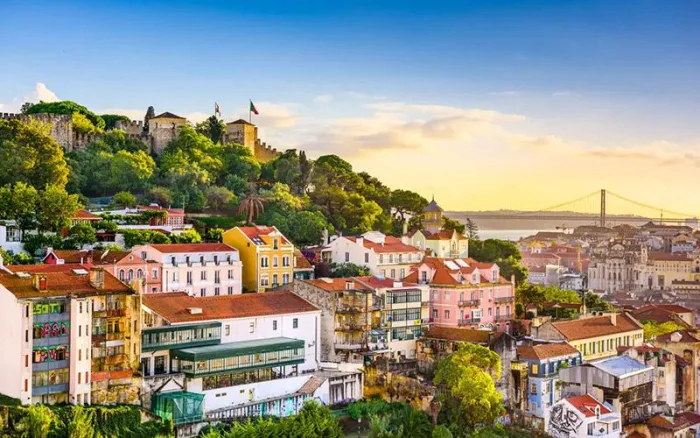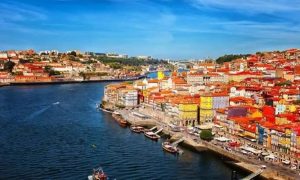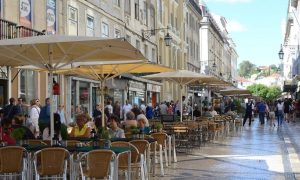Yesterday another client asked me, "I heard thatImmigration to PortugalYou can get an EU passport if you live 35 days a year?" I barely managed to spit out the coffee I'd just been drinking.
This kind of talk inimmigrantsCircle has been spread all over the world, but honestly, this is a complete marketing trap. Today, we'll take this "35-day myth" completely to the bottom.
Let's get a basic concept out of the way
Many people simply cannot tell the difference between residency and nationality. It's like confusing renting with buying, which is a completely different thing.
The Portuguese Golden Visa gives youright of abode (law)The EU passport is the equivalent of a "long-term tenant" status in the EU. The EU passport, on the other hand, representscitizenshipThat's "real estate license" status.
The residency requirements for the Golden Visa are really loose:
- 7 days in the first year
- 14 days every two years thereafter
But that only allows you to maintain residency status, which is a million miles away from getting a passport.
How do you make up "35 days to get a passport"?
I researched the source of the claim and found the set-up to be deep.
Some agents add up the minimum residency requirements for 5 years: 7 days + 14 days + 14 days = 35 days, and then trumpet "35 days to get an EU passport".
That logic is as absurd as saying "I eat an apple a day, 365 a year, so I can eat 365 apples a day".
How high is the real threshold for naturalization
Want a Portuguese passport? Check out these hard indicators first:
timing: 5 years of legal residence (note that this is a continuous period of 5 years).
housing intensity: Actual residence must not be less than 30 months in 5 years, i.e. an average of at least 6 months per year.
language barrier: Must pass the Portuguese A2 proficiency test
Other conditions: No criminal record, knowledge of Portuguese history and culture, stable source of income.
Just do the math, you'll have to live in Portugal for almost 900 days over 5 years, not just 35 days.
I've seen rollovers with my own eyes.
Last year there was a foreign trade boss, listened to the "35 days to get a passport" nonsense. 5 years in strict accordance with the minimum standards, every year, just live so ten days.
As a result, the application for naturalization was rejected by the Immigration Department on straightforward grounds: a serious lack of residence time and a lack of basic understanding of Portuguese society.
This owner is still over there suffering to catch up and recalculate his residence time. He even tweeted me a few days ago complaining that he should have known better than to take this bargain.
There is a worse example. An IT engineer, who has enough residence time, failed his Portuguese exam 4 times in a row.A2 sounds simple, but for Chinese people, Portuguese grammar and pronunciation are pretty tough.
The Real Effects of Different Residential Strategies
Based on what I've observed over the years, there are roughly a couple of housing patterns for clients:
clocking school: Strictly the minimum requirements and basically nothing to do with naturalization. The success rate is almost zero.
vacation party: Go and live there for 3-4 months every winter to avoid the cold + maintain your status at the same time. Naturalization success rate is about 30%.
person who stays with sb. to help with schoolwork: The family moved there for the sake of the children's education. Highest success rate, basic 90% or above.
business school: Have local business dealings and naturally live long enough. The success rate is also high, around 80%.
The data doesn't lie, and if you want a passport you have to actually put in the time and effort.
How difficult is the language barrier?
The Portuguese A2 exam stuck a large number of people, this is really not a joke.
A2 level requires you to be able to:
- Understand the main elements of everyday conversations
- Describe personal information and needs in simple sentences
- Reading short practical texts
- Write simple personal letters
It doesn't sound too hard, but in practice it kills me. Portuguese verb conjugation, voice intonation, and dialect differences are all roadblocks.

I would recommend starting your preparation at least 18 months in advance and don't expect to improvise.
The Stealth Bomb of Tax Status
This pitfall is one that many people don't realize. Staying in Portugal for too long can result in being recognized as a tax resident and being required to declare global income.
The basic principle is:
- Less than 183 days a year: usually not a tax resident
- More than 183 days: likely to be recognized as a tax resident
- Permanent residence + main economic interest in Portugal: high probability of being a tax resident
This calls for professional tax planning. I've seen people end up with back taxes that hurt because they couldn't figure out their tax status.

What's new in policy in 2025
Here's some recent good news: you can now count the application waiting period toward the five-year requirement for naturalization.
For example, if you submit your application in 2023 and are approved in 2025, you can apply for naturalization in 2028 and don't have to wait until 2030.
But don't get too excited, the residency requirements and language exams are still the same, not relaxed at all.
A few words of advice for those who want to immigrate
Don't believe in pie in the sky storiesAnyone who promises "easy status" should be questioned. Any promise of "easy status" is a question mark.
Plan for the long term. From application to passport, 7-8 years is the norm, don't expect a quick fix.
Taking language learning seriously. Portuguese is not something that can be fixed overnight, so prepare early and relax.
Choose a reliable service provider. This business is deep, don't be fooled by low prices and false promises.
Rationally assess your needs.. Immigration is not an end, but a means to an end. Figure out what you really want.
Final Thoughts
Immigration to PortugalIt is indeed a more reliable way to obtain EU status at present, with a high quality of life and good education and healthcare.
But it's definitely not the "win-win" model that the internet makes it out to be. If you want real EU status, you have to put in the time and effort.
Those "35 days to get a passport" statement, purely cut leek set. The real immigration road, there is never a shortcut to go.






